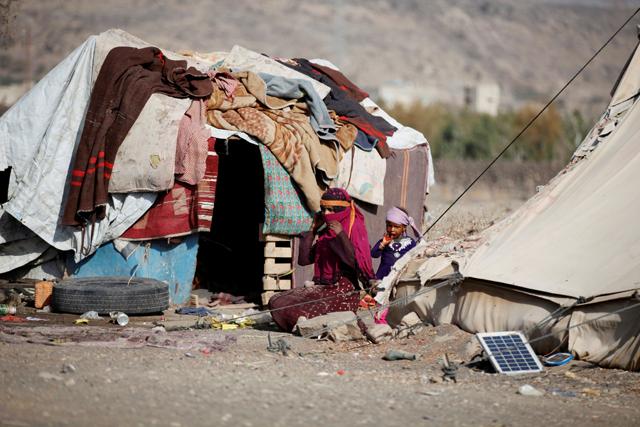You are here
Tensions soar on Biafra Remembrance Day in southeast Nigeria
By AFP - May 30,2021 - Last updated at May 30,2021
LAGOS — Tensions were running high on Sunday in south-eastern Nigeria as the former separatist region commemorates the more than million people who died in the war and famine in the late 1960’s.
The Indigenous People of Biafra (IPOB), the leading separatist group, is remembering war victims over two days, with a candlelit march on Sunday evening and a strict order for people to remain indoors on Monday for their own safety.
“Every person in Biafra land is therefore, advised to observe a sit-at-home order on Monday,” IPOB spokesperson Emma Powerful said in a statement, noting that markets and shops should close.
“We strongly advise our people against flouting this order as anyone found outside one’s house that day may be the target of our enemies,” the spokesperson said, alluding to federal security forces.
The streets of Owerri, the capital of Imo state, were already totally empty on Sunday, as residents stayed indoors a day after the killing of two air force personnel by unidentified gunmen.
“Nobody is leaving their residence,” said local Ajibade Awofeso, claiming air force staff had blocked roads and were shooting sporadically in protest at the killing of their colleagues.
“The situation is serious here,” added Mayelope Opeyemi, another resident.
“We are living in fear and do not know what will come next.”
“Government should do something so that peace will return to the state.”
The neighbouring states of Anambra and Ebonyi were also affected and witnesses reported that main thoroughfares were deserted, apart from military vehicles.
Violence has flared in the southeast this year leaving dead at least 127 police or members of the security services.
Some 20 police stations and election commission offices have been attacked, according to local media.
The IPOB denies its armed wing, Eastern Security Network, bears any responsibility for the attacks, which happen almost weekly.
In May 1967, Igbo generals from a rebel province declared independence for the “Republic of Biafra” sparking a bloody civil war and a terrible famine.
Calls for independence have grown again since the former general Muhammadu Buhari, a Hausa from the north, became president of Nigeria in 2015.
Related Articles
GENEVA — The risk of mass starvation in four countries — northeast Nigeria, Somalia, South Sudan and Yemen — is rising rapidly due to drough
GENEVA — The risk of mass starvation in four countries — northeast Nigeria, Somalia, South Sudan and Yemen — is rising rapidly due to drough
GENEVA — A UN-backed report on Yemen has found no full-blown famine in the country but said 60 per cent of Yemenis, or 17 million people, ar



















